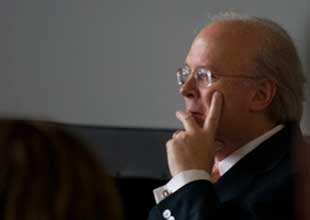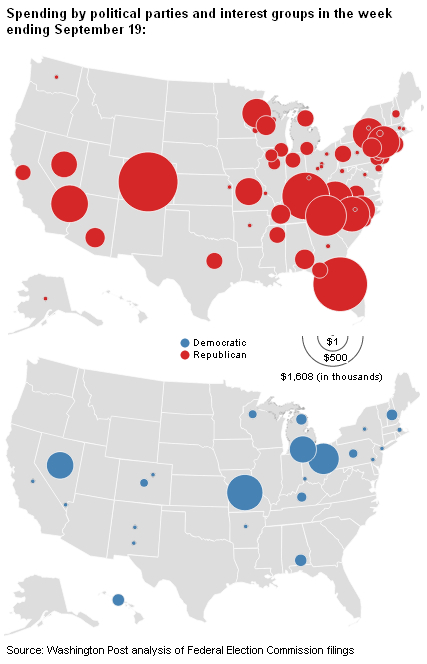
Flickr/<a href="http://www.flickr.com/photos/jded/3517427116/">JD_WMWM</a> (<a href="http://www.creativecommons.org">Creative Commons</a>).
A small handful of superrich businessmen and corporations are behind Karl Rove’s American Crossroads, the most prominent Republican “Super PAC,” which brought in an eyebrow-raising $15 million from September 1 to mid-October. Of that amount, more than $7 million came from a single contributor, Texas homebuilder Bob Perry—a longtime Republican donor who rose to infamy for backing the Swift Boat Veterans for Truth’s attacks on John Kerry in 2004. Other major donors include Robert Rowling, an oil and hotel billionaire from Texas who threw in $1.5 million, and the Alliance Resource Group, a financial services firm with investments in the coal industry, which gave $2 million. Together with B. Wayne Hughes of a Kentucky-based company called Public Storage, these four donors made up two-thirds of the most recent donations to the group.
The third-quarter haul brings Americans Crossroads’ total fundraising to $23 million. That doesn’t even include the millions of undisclosed donations that are being funneled through the group’s sister organization, American Crossroads GPS, which as a 501(c)4 isn’t required to reveal its donors. And it’s starting to become apparent how this torrent of cash could end up altering the political landscape. Crossroads recently launched a “House surge strategy” to pour cash into competitive districts where Democrats didn’t think they would have to defend themselves. As a result, Dave Weigel reports, typically safe Democrats who’d otherwise give their funds to more endangered members have had to spend their own cash—most notably Rep. Barney Frank (D-Mass.), who loaned his own campaign $200,000 after an unexpectedly tough challenge in his home district.
Early in the summer, many observers wrote off Rove’s group for only raising $200 in May, when it had just $1.25 million in the bank. The tea party, in all its raucous, pageview-generating glory held the spotlight, while establishment Republican operatives faded into the background. So no one paid much attention as Rove and his collaborators worked under the radar to court big donors and build up their shadow Republican Party. And all it took was a small handful of megadonors to change the calculus of the election.













